This guide will help you understand cremation costs in Arizona. We have included a price comparison for cremation services in the major cities, practical tips for saving money, and essential information for arranging a cremation service in Arizona.
As more families turn to direct cremation in Arizona as a more affordable and flexible alternative, it’s important to explore the various options available. Deciding on the right cremation service for your needs is a crucial step in planning.
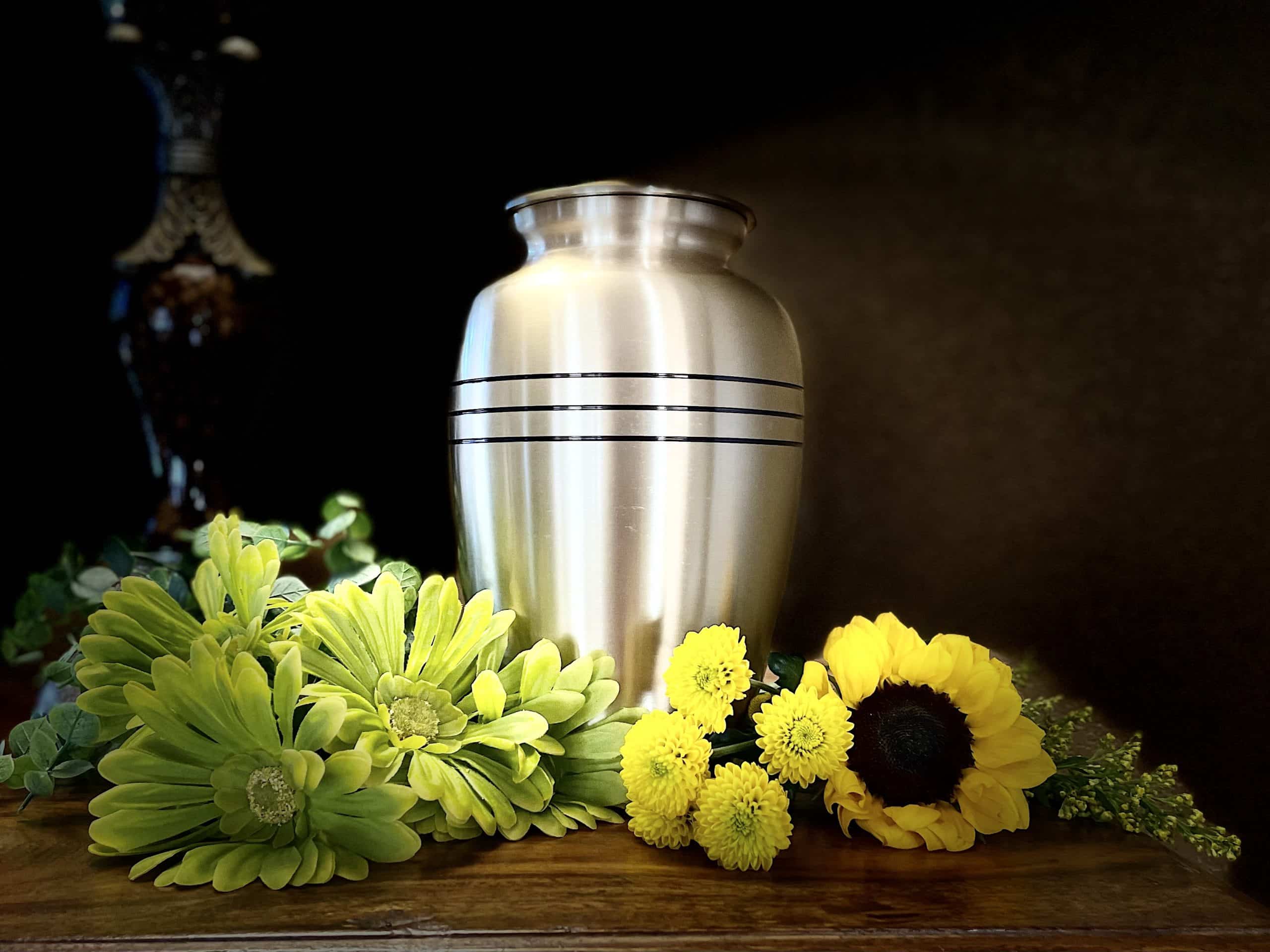
Best direct cremation prices by City in Arizona
| CITY | AVERAGE PRICE | BEST PRICE (DFS) | CALL NOW (DFS) |
|---|---|---|---|
| CHANDLER | $1,444 | $950 | (602) 638-1151 |
| GILBERT | $1,437 | $950 | (602) 638-1151 |
| GLENDALE | $1,467 | $950 | (602) 638-1151 |
| MESA | $1,444 | $950 | (602) 638-1151 |
| PEORIA | $1,437 | $950 | (602) 638-1151 |
| PHOENIX | $1,437 | $950 | (602) 638-1151 |
| SCOTTSDALE | $1,444 | $950 | (602) 638-1151 |
| TUCSON | $1,347 | $785 | (520) 200-7742 |
Click to call your local Arizona DFS Memorials location for immediate assistance in arranging an affordable direct cremation service.
How much does cremation cost in Arizona?

First, be aware that the cost of a cremation service can vary quite significantly. This can largely depend on the type of cremation service you choose, any ancillary services you choose, and the service provider you select.
Funeral homes are still known to be notoriously poor at divulging their prices online or over the phone. However, according to the FTC Funeral Rule, they must provide you with a General Price List (GPL) or pricing on cremation service packages when you inquire.
A cremation service can cost from $785 to $4,800, depending on the package you opt for and the funeral home you select.
To help you determine how cremation costs compare and what you can expect to pay for direct cremation, we have outlined below a table of average direct cremation prices by city.
What is the cheapest cremation option in Arizona?
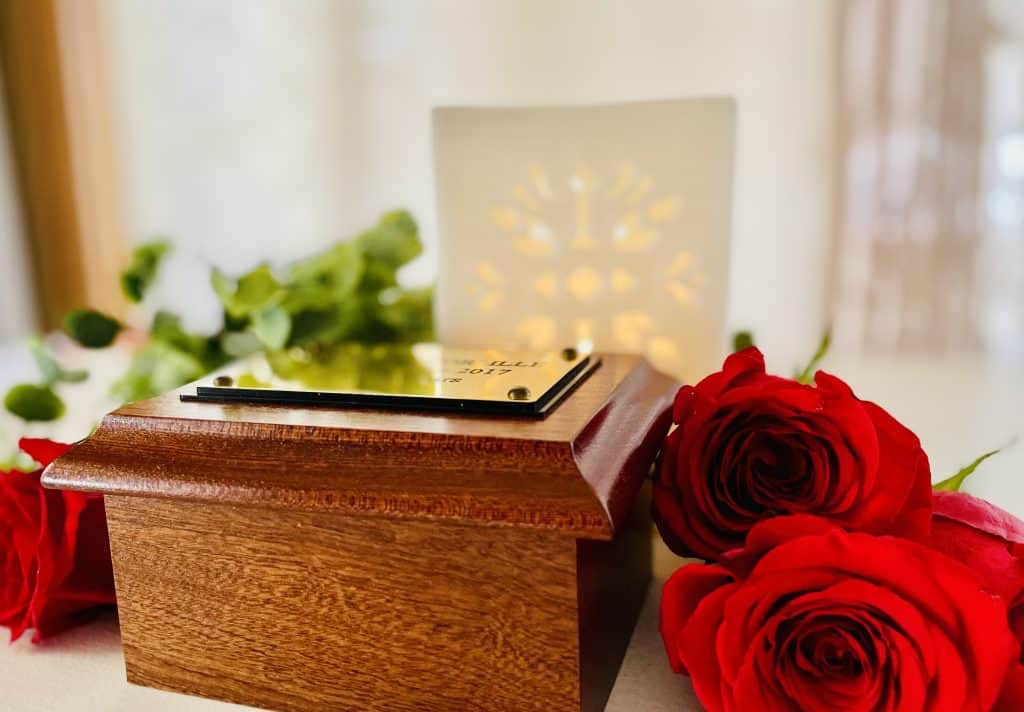
Direct Cremation is the least expensive cremation disposition option. It is a basic service package in which the deceased is collected and cremated, and the cremated remains are returned directly to the legal next of kin or designated person.
The funeral service provider conducts no ceremony.
The cremation is completed, and the cremation ashes are made available for the family or can be mailed by USPS Priority mail. All arrangements can be made without the next of kin needing to visit a funeral home, and over 40% of funeral homes offer online arrangements on their websites today.
A family may arrange their own Memorial Service once the cremation ashes are returned. This minimal and economic disposition service by a funeral home helps to save on funeral costs. Also, it gives the family more control over when and where to memorialize the deceased.
Can I expect any additional charges to a basic direct cremation package?
Generally, a direct cremation package should include the following:
- Basic Services of the Funeral Director
- Collection of the deceased (may be an additional charge if outside a specific service area)
- Refrigerated storage of the deceased until cremation
- Completion and filing of required documents, authorizations, and permits
- A basic cremation container
- The cremation
- A temporary urn is needed to return the cremation ashes.
Any additional fees are usually ‘third-party’ charges, which are county fees for services such as the cremation permit and death certificates.
However, some service packages may include the permit fee and one death certificate.
Extra charges you can encounter could be:
- Additional mileage charge for collection outside of the basic service area
- A charge for a residential collection (as this usually requires extra man-power)
- For removal of a pacemaker (or other combustible medical devices)
- Extra charge for a barometric (overweight) cremation
You must decide how many copies of the death certificate you require. Having more than one to close the deceased’s estate and probate is usually helpful. Often, it is easier and less expensive to order multiple copies when filing for the death certificate.
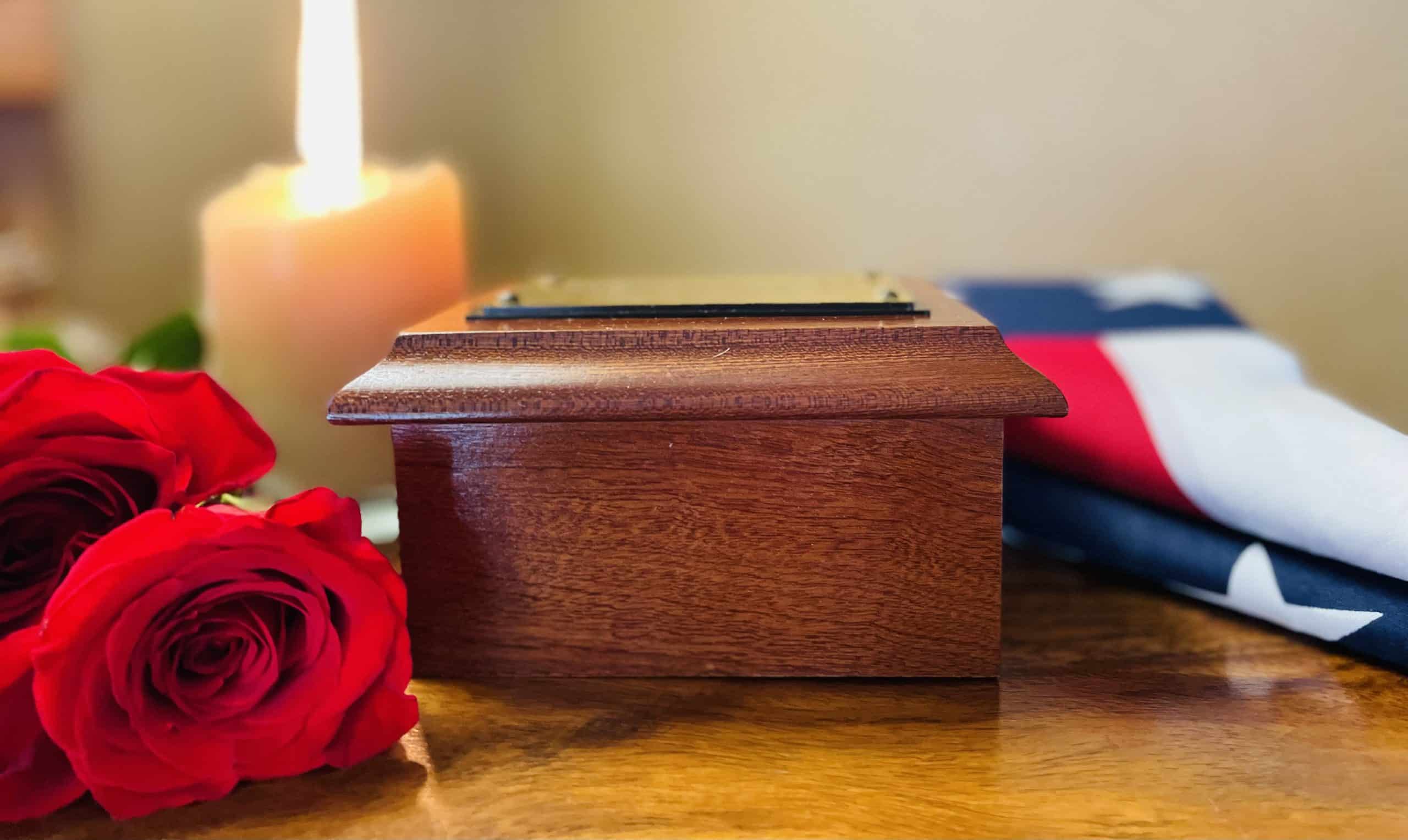
Will the state of Arizona pay for a cremation? What assistance is available to help me pay for a cremation?
Financial assistance for funeral expenses is minimal. Some counties may offer up to $500, and the County Public Fiduciary manages this.
Visit our Guide on Social Assistance Funeral Programs.
A County does have a responsibility to take care of indigent funerals, but this is usually the most basic service.
There is a $255 Social Security lump-sum death benefit payment (if the deceased qualifies), and the funeral director will usually assist in claiming this. Some funeral service providers will offer discounts for Veteran or Hospice patients.
To find out more about county support for cremation costs, contact your local county Social Services Department.
You could also consider a whole-body donation in Arizona, as a free cremation is offered to those who donate their body to science.
Visit our article on Body Donation to learn more.
What laws do you need to know to conduct a cremation in Arizona?
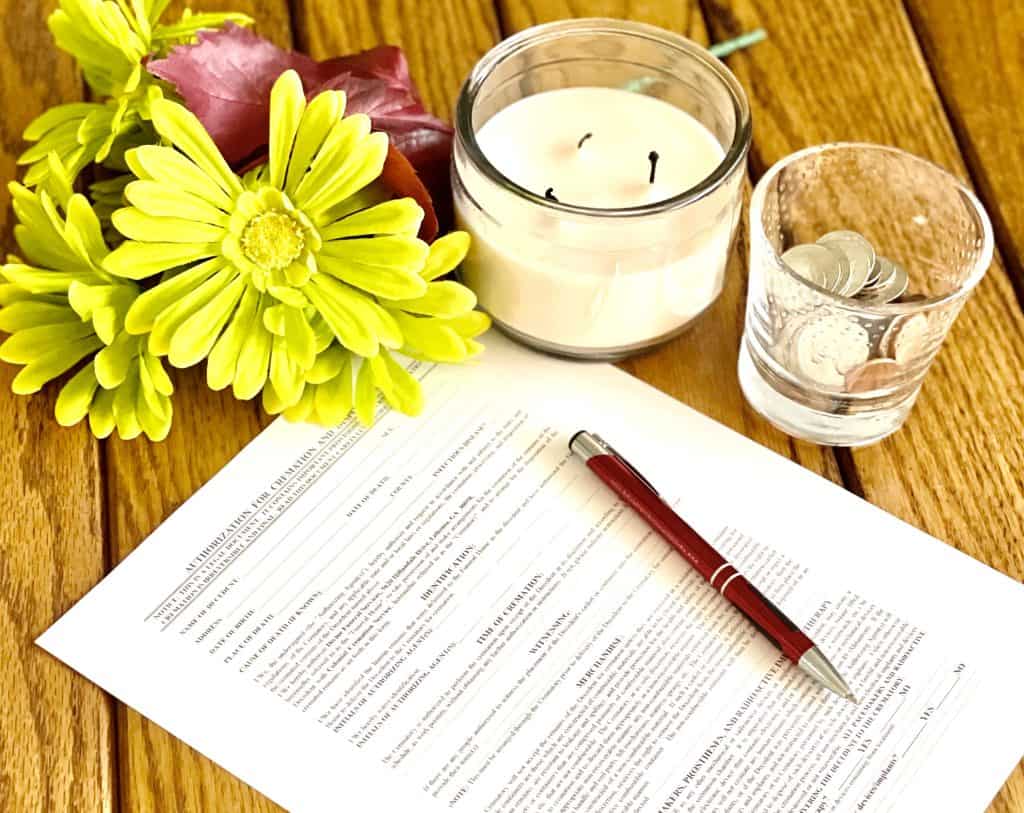
Cremation is the final disposition of a human body where DNA is destroyed, and often, remains can be scattered or dispersed. For this reason, strict laws govern the authorization and cremation process.
The legal next of kin must sign the authorization to cremate the body before a cremation permit can be issued by the Coroner. If there are multiple next of kin, for example, siblings, then ALL must agree and sign off on the cremation authorization.
If preplanning a cremation, an individual can pre-sign the required authorization forms, making things much easier for surviving families when the time comes.
A mandatory waiting period of 24 hours must elapse following the death before a cremation can be performed. However, it usually takes a few days to get all the paperwork in place for a cremation to proceed.
How long does cremation take in Arizona?
Usually, it will take 3-7 days before a cremation can go ahead. It can take longer if there is any delay with completing authorizations or obtaining the death certificate and cremation permit.
If required, an expedited cremation can be performed after the mandatory wait period and if all authorizations are quickly completed. There may be an additional charge for this.
The cremation process usually takes 3-5 hours to complete. Although this varies depending on the cremation retort machinery, the body, and the time of day the cremation is conducted.
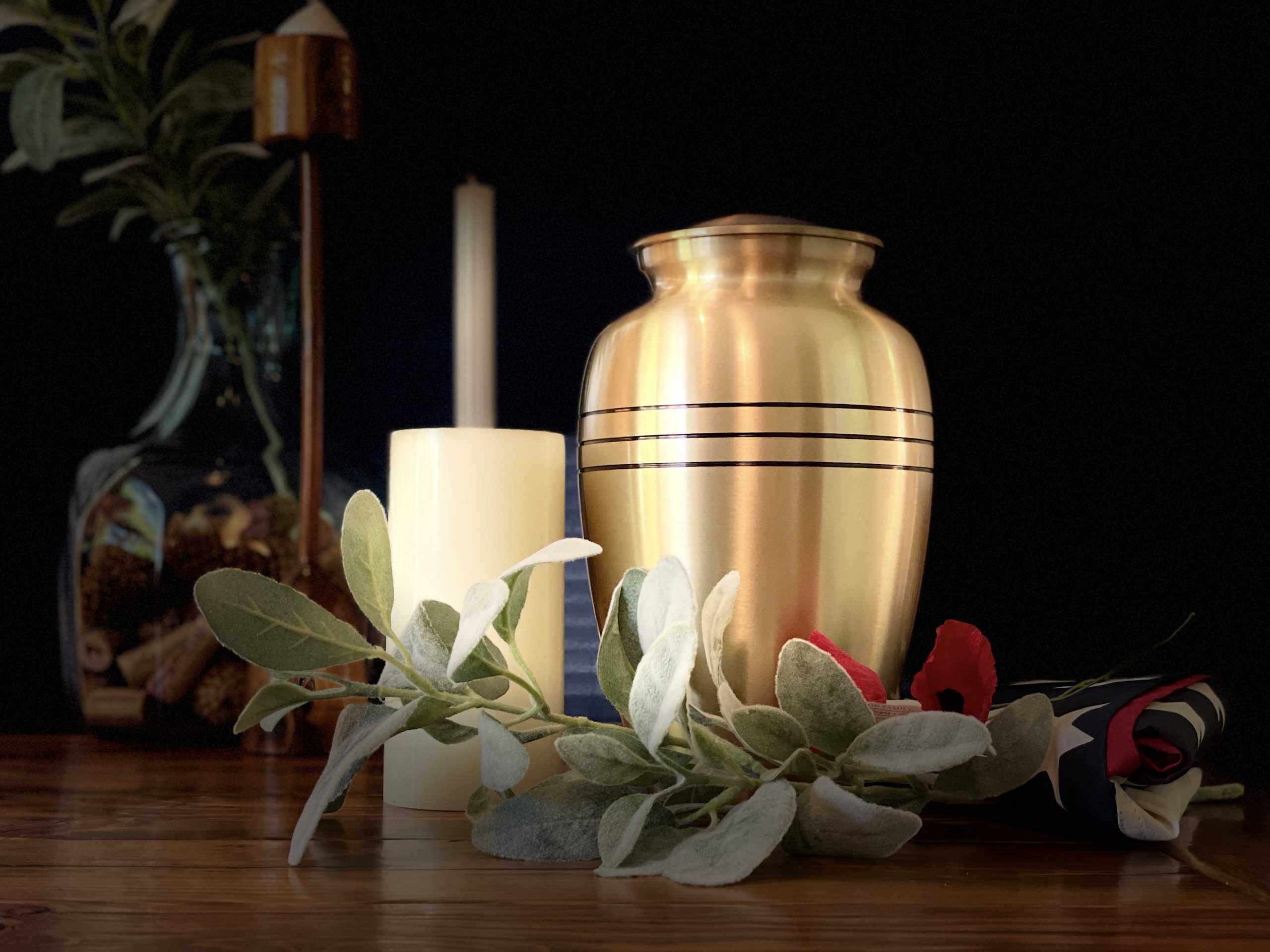
Is Water Cremation or Aquamation available in Arizona?
Yes, water cremation is legal, although we do not know of any funeral service providers offering it in Arizona. Water cremation is a little more expensive than flame cremation but is much greener, with a significantly lower carbon output.
To learn all about Water Cremation and its benefits – visit our Guide to Aquamation or Resomation.
Where can I legally scatter cremation ashes?
The scattering of cremated remains is still somewhat an unregulated practice. Cemeteries may offer scattering gardens but will charge you for the service. If you wish to scatter your loved one’s ashes somewhere scenic, public, and special, you just need to follow certain dispersal guidelines and check any public land permit rules.
Visit our Complete Guide to Scattering Cremated Remains for tips on how to scatter ashes safely, where you can scatter – rules & regulations, and ideas about creative ash scattering memorial tributes.
For further reading about Cremation Services, we have an Ultimate Guide to Cremation and a section with Resources for Arranging a Cremation.
For further reading about arranging a funeral or cremation – visit our Arizona Funeral Planning Guide.
We also have more detailed guides to arranging a cremation for Phoenix and Tucson.

